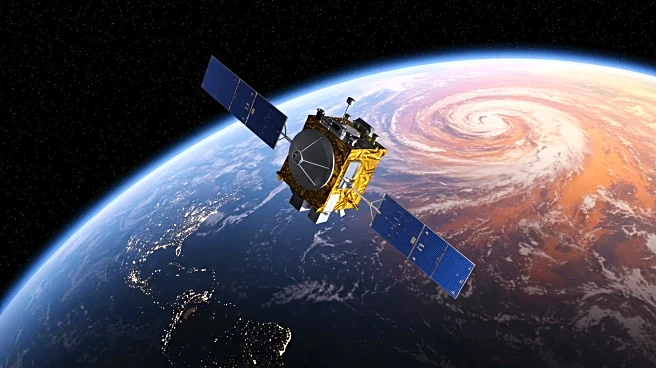What is the story about?
What's Happening?
NASA's PREFIRE (Polar Radiant Energy in the Far-InfraRed Experiment) mission has been extended through September 2026, expanding its focus from Earth's poles to the entire globe. The mission utilizes two CubeSats to measure the capacity of water vapor, clouds, and other elements to trap heat, providing insights into how these factors influence the climate system. Originally launched in spring 2024, PREFIRE has been gathering data on heat emissions from the Arctic and Antarctic, which are crucial for understanding global temperature dynamics. The mission aims to improve weather forecasts and enhance understanding of global climate change.
Why It's Important?
The extension of the PREFIRE mission is significant for climate science, as it offers a more comprehensive understanding of how heat is distributed across the planet. By expanding the focus beyond polar regions, the mission can provide valuable data that may improve weather prediction models and inform climate policy. This could lead to better preparedness for severe weather events and contribute to global efforts to mitigate climate change impacts. Stakeholders in environmental policy, meteorology, and climate science stand to benefit from the enhanced data and insights provided by PREFIRE.
What's Next?
The PREFIRE mission will continue to collect and analyze data from around the globe, with a focus on incorporating findings into weather prediction models. Researchers will expand their analysis to include data from non-polar regions, potentially leading to improved forecasts and a deeper understanding of global moisture circulation. This could influence where storms form and how precipitation patterns shift, impacting agriculture, infrastructure, and disaster preparedness strategies.
Beyond the Headlines
The PREFIRE mission's findings could have long-term implications for climate science, particularly in understanding the role of ice particles in clouds and their effect on energy exchange between Earth and space. This knowledge may contribute to more accurate climate models and inform strategies for addressing global warming. The mission also highlights the importance of international collaboration in space exploration and climate research.















